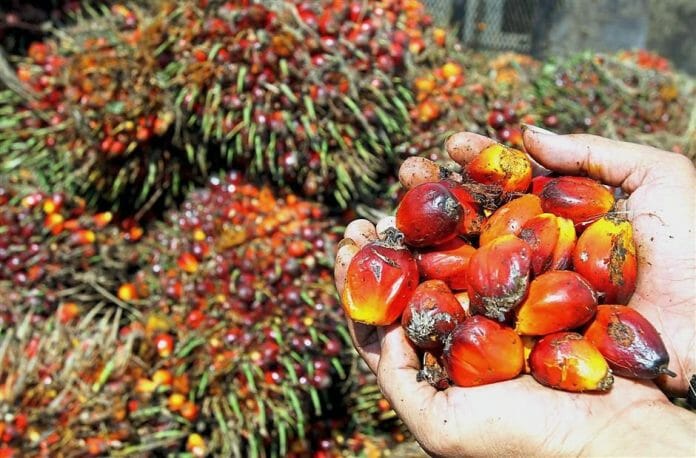By Eur Ing Hong Wai Onn– In an era characterized by delicate environmental and social complexities, the significance of industries in propelling sustainable development has reached unprecedented heights. Among these sectors, the palm oil production domain has been thrust into the limelight, facing rigorous examination owing to its profound environmental implications and entangled social dilemmas. However, a transformative shift is underway as sustainable palm oil practices are increasingly aligning with the United Nations Sustainable Development Goals (SDGs), thereby illuminating a promising path where palm oil becomes a potent force for positive change.
The United Nations’ 17 SDGs map out an all-encompassing pathway towards a heightened and more sustainable global order. Spanning the gamut from obliterating poverty to safeguarding pristine water sources and cultivating conscientious consumption, these goals form a cohesive tapestry of interrelated objectives. Amidst the spotlight cast on the palm oil industry, notorious for its associations with deforestation, the erosion of biodiversity, and social inequities, an imperative for transformation is dawning – a call to align with these far-reaching global ambitions.
Cultivating Environmental Harmony
At the heart of the formidable influence of sustainable palm oil on advancing the SDGs lies its potent ability to decisively confront pressing environmental hurdles. This assertion gains strength from the persuasive substantiation of a decreasing trend in deforestation rates across Indonesia and Malaysia. These nations, driven by an unwavering commitment to sustainable practices, exhibit a compelling testament to the positive potential of the palm oil industry in safeguarding our ecosystems. The palm oil industry showcases its unwavering dedication to mitigating habitat destruction and safeguarding the intricate web of biodiversity by embracing initiatives such as zero deforestation and the preservation of High Conservation Value areas. Furthermore, the industry’s commitment to responsible and sustainable practices is reinforced by the effective adoption of voluntary and mandatory standards such as the Roundtable on Sustainable Palm Oil (RSPO), the Malaysian Sustainable Palm Oil (MSPO), and the Indonesian Sustainable Palm Oil (ISPO). The calibrated integration of agroforestry practices and scrupulous land management doesn’t just highlight the pivotal stance of palm oil producers in the battle against climate change; it also situates them as indispensable agents in fostering robust, flourishing ecosystems. This strategic approach seamlessly harmonizes with the imperatives of both SDG 13 (Climate Action) and SDG 15 (Life on Land), solidifying their essential role in the collective pursuit of these global goals.
Empowering Social Progress
Extending beyond its ecological footprint, the palm oil sector wields a profound socio-economic sway, assuming a central position in the sustenance of millions within rural communities. According to World Bank, by acting as a vital source of income and economic security for numerous families, the industry plays a pivotal role in direct employment for a substantial portion of the global population. Significantly, palm oil manufacturing encompasses and enlists over six million individuals hailing from rural origins worldwide. The fabric of this production realm is predominantly woven by small-scale farmers, a pattern that persists and flourishes as participation continues to burgeon. Embracing sustainable methods within the palm oil sector, while simultaneously guaranteeing fair labor conditions and nurturing community involvement, carries the promise of not merely preserving current livelihoods but enriching them as well. This strategy resonates seamlessly with the ethos of SDG 1 (No Poverty) and SDG 8 (Decent Work and Economic Growth), fortifying the industry’s potential to elevate societies and catalyse beneficial socio- economic shifts. In doing so, it shapes a more comprehensive and prosperous future that transcends boundaries.
Seeding Economic Transformation
The journey toward sustainable palm oil transcends the boundaries of environmental and social concerns, venturing deep into economic terrain. By embracing conscientious methodologies, palm oil producers tap into the escalating appetite for sustainable goods, propelled by environmentally mindful consumers. An array of palm oil producers prominently exhibit certifications such as RSPO, MSPO, and the International Sustainability & Carbon Certification (ISCC) on their offerings. These symbols stand as unequivocal tokens of their steadfast dedication to principled and sustainable production practices. This transition seamlessly resonates with the essence of SDG 12 (Responsible Consumption and Production), underscoring the industry’s pivotal role in shaping market dynamics towards a trajectory of sustainability. As per a joint study from McKinsey and Nielsen, a notable 66% of global consumers are willing to pay more for products from environmentally and socially committed companies, with 75% of millennials prioritising purchases aligned with their values. Through the integration of sustainable methodologies, palm oil producers not only fulfil the demands of discerning consumers but also amplify their standing in the competitive market, cultivating the seeds of enduring growth. This astute manoeuvre propels the industry to the vanguard of an evolving global market landscape, thus actively fostering the emergence of a future steeped in sustainability.
Tackling Challenges through Collaborative Endeavours
Amidst notable progress, the path to comprehensive sustainability remains strewn with challenges. Striking the intricate balance between economic advancement, ecological conservation, and societal equity remains an intricate puzzle. Nonetheless, amidst this intricate interplay, instances abound that highlight the emergence of collaborative endeavours as beacons of hope. These instances underline the potency of partnerships in conquering these obstacles, unfurling a tapestry of shared triumphs. As a case in point, the Council of Palm Oil Producing Countries engaged in constructive dialogues with the European Union to address concerns related to the European Delegated Regulation (EUDR), showcasing the manner in which industry-wide collaborations can lead to meaningful solutions. Moreover, at the local level, palm oil companies have joined forces with communities, embracing the principle of Free, Prior, and Informed Consent to ensure responsible land use practices that respect environmental as well as social considerations. These collaborative endeavours, exemplified by SDG 17
(Partnerships for the Goals), underscore the pivotal role of collective action in propelling the palm oil industry towards sustainable practices. Driving Sustainability Forward
Amid the eagerly awaited United Nations Climate Change Conference (COP28), the discourse surrounding palm oil sustainability assumes unprecedented importance. The impending COP28 emerges as a distinctive platform, drawing together global leaders, policymakers, and industry representatives in a shared quest to delve deeper into the intricacies of sustainable palm oil practices. By placing the spotlight on the confluence between the palm oil sector and the SDGs, stakeholders are emboldened to actively engage in profound dialogues and collaboratively shape policies that steer us towards a more sustainable tomorrow.
In this pivotal juncture, the world’s focus must pivot to the remarkable strides achieved by the palm oil industry. The alignment of sustainable palm oil methodologies with the SDGs not only holds the power to redress environmental degradation, social disparities, and economic imbalances but also envisions the industry’s metamorphosis into a catalyst for positive transformation. Through the convergence of consumers, policymakers, and industry trailblazers, a collective endeavour takes shape – one that moulds a future where palm oil production stands as a luminous exemplar of environmental and social harmony. This united effort resonates as a resounding commitment to redefining the trajectory of palm oil’s impact, thus making resolute strides towards global sustainability.
By Eur Ing Hong Wai Onn, a chartered chemical engineer and a Fellow of the Institution of Chemical Engineers and the Royal Society of Chemistry. He is also the author of “A Chemical Engineer in the Palm Oil Milling Industry”









